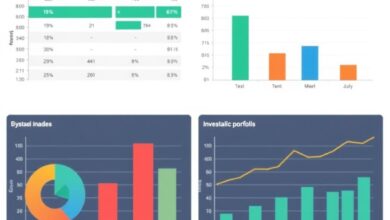How to invest ethically and support what you believe in

Consider allocating resources to green funds, which focus on sustainable businesses dedicated to environmental stewardship. These funds often incorporate ESG criteria, assessing a company’s environmental, social, and governance practices. By choosing these options, individuals contribute to combating climate change while potentially benefiting from long-term financial returns.
Another avenue worth exploring is socially responsible investments (SRI), where portfolios reflect personal ethics by avoiding industries such as fossil fuels or tobacco. This strategy allows for a dual approach: generating profit while promoting positive societal impact. Look for investment vehicles that explicitly state their commitment to ethical guidelines.
Diversifying within the realm of sustainable finance can enhance both portfolio resilience and alignment with personal convictions. Research shows that companies adhering to high ESG standards often outperform their peers over time, proving that responsibility and profitability can coexist in the financial sphere.
Identifying Your Core Values
Begin with a reflective exercise: list key principles that resonate deeply with you. Consider aspects such as environmental sustainability, social justice, or community engagement. This clarity forms the foundation for your financial decisions.
Engage in discussions with like-minded individuals or groups to gain insights into what drives their choices in green funds and socially responsible ventures. Peer perspectives can illuminate values you may not have fully recognized.
Utilize tools and resources focused on ESG criteria to evaluate potential investments. Familiarize yourself with frameworks that assess company practices related to environmental impact, social responsibility, and governance standards. Aligning these assessments with your principles enhances decision-making.
Create a personal mission statement that encapsulates your core beliefs. This concise declaration serves as a guiding star when evaluating opportunities in the marketplace.
Regularly revisit and refine this list as circumstances evolve or new information surfaces. Remaining adaptable ensures that your financial approach continually reflects your most authentic self.
Evaluating Ethical Investment Options
Focus on green funds that prioritize environmental sustainability. Look for mutual funds or ETFs specifically designed to invest in companies with strong ecological practices. Assess their portfolios to ensure they align with your environmental goals.
Investigate socially responsible investment (SRI) options, which screen out businesses involved in activities like tobacco, firearms, or fossil fuels. Check the fund’s criteria for selecting investments and ensure they resonate with your ethical standards.
Examine the performance metrics of these financial products. While aligning with principles is crucial, reviewing historical returns and volatility can help gauge potential profitability without compromising beliefs.
Consider engaging with impact investing platforms. These often offer direct opportunities to support projects that generate measurable social benefits alongside financial returns. Evaluate the transparency of these initiatives and their alignment with your ethical framework.
Review third-party ratings and reports from organizations specializing in sustainability assessments. Resources like MSCI ESG Ratings or Morningstar’s sustainability ratings provide insights into how well funds meet specific ethical benchmarks.
Engage with community discussions and forums focused on ethical finance. Learning from others’ experiences can reveal valuable insights about lesser-known investment opportunities that align closely with personal convictions.
Aligning Portfolios with Beliefs
Consider allocating a portion of assets to green funds that prioritize sustainability and environmental stewardship. These investment vehicles often focus on companies with robust ESG (Environmental, Social, Governance) metrics, ensuring alignment with ecological principles.
Conduct thorough research to assess the performance of these funds against traditional benchmarks. Look for consistent returns alongside their commitment to sustainable practices. This dual focus will not only enhance potential financial growth but also resonate with personal convictions.
Engage with platforms that provide transparency regarding fund holdings and their ESG ratings. Being informed about specific investments helps in making conscious choices that reflect individual priorities.
Incorporate thematic investing strategies centered on renewable energy, waste reduction, or social equity. This targeted approach can amplify the impact by channeling resources into sectors that align closely with personal ethics and ideals.
Regularly review portfolio allocations to ensure they remain in sync with evolving beliefs and objectives. Adjustments may be necessary as new opportunities arise or as values shift over time.
Measuring Impact of Investments
To evaluate the effectiveness of financial commitments, utilize specific metrics that align with your ethical framework. Focus on quantitative and qualitative indicators to assess how well investments resonate with your principles.
- ESG Scores: Examine Environmental, Social, and Governance ratings provided by agencies like MSCI or Sustainalytics. These scores offer a snapshot of how companies perform in relation to sustainability and ethical practices.
- Impact Reports: Request detailed reports from organizations that highlight social outcomes. Look for data on community engagement, employee satisfaction, and contributions to local economies.
- Carbon Footprint Analysis: Evaluate the carbon emissions associated with investments. Companies committed to reducing their environmental impact usually provide transparency in this area.
Incorporate both short-term and long-term assessments for a comprehensive understanding of investment impacts:
- Short-term Metrics: Review quarterly performance related to social responsibility initiatives. This includes immediate benefits such as job creation or community projects initiated by funded entities.
- Long-term Outcomes: Analyze sustained changes over years, such as advancements in renewable energy usage or improvements in workplace diversity.
Engage with third-party evaluation services to gain an unbiased perspective on investment performance aligned with social goals. Collaborating with these evaluators can enhance accountability and transparency.
A continuous feedback loop is vital; regularly revisit assessment criteria to ensure they align with evolving expectations and standards in socially responsible investing. Adjustments based on findings will refine future strategies effectively.
This rigorous approach not only highlights the financial viability but also demonstrates a commitment to fostering meaningful change through carefully selected economic engagements.







